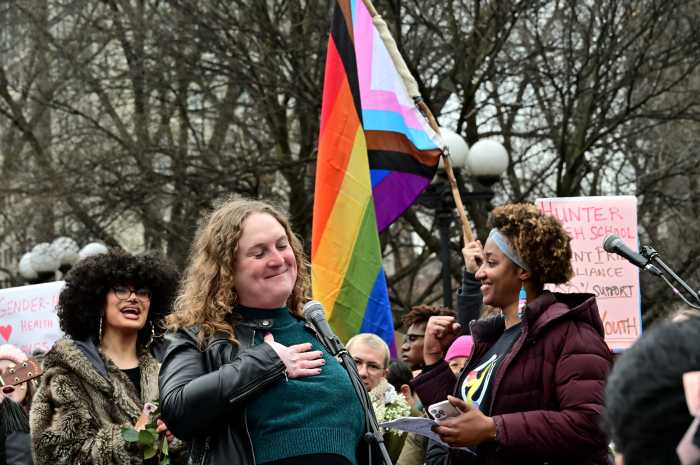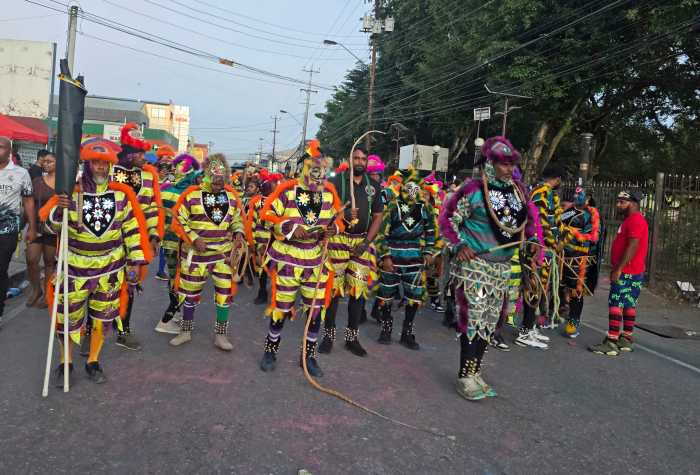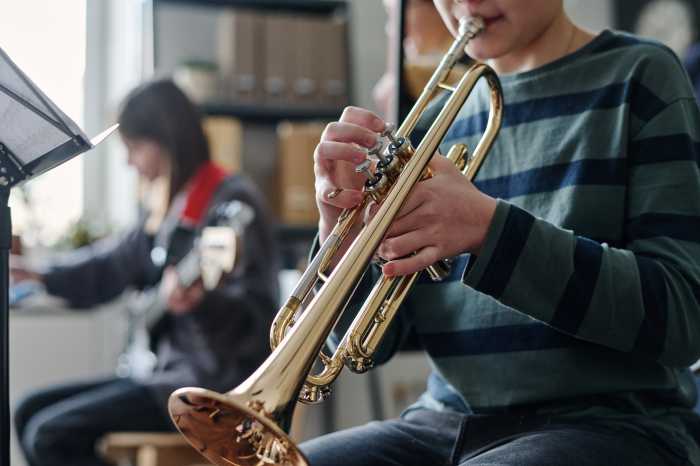Government officials and non-profit leaders held a ribbon-cutting ceremony on Oct. 24 to celebrate the completion of a supportive housing development in Harlem with services for homeless LGBTQ youth and young adults between the ages of 18 and 25.
So far, 49 out of 50 tenants have moved into fully-furnished studio apartments in the building, which broke ground in November of 2021. The $22 million, nine-story project at 15 West 118 Street, dubbed Homeward Central Harlem, was developed by Type A Projects and Azimuth Development Group.
The non-profit Homeward NYC will run onsite services and co-own the property. KeyBank Community Development Lending and Investment and other affordable housing firms contributed to funding the project, as well as the Department of Housing Preservation and Development (HPD), state agencies, and funding from other organizations.
Homeward Harlem is Homeward’s third supportive housing development tailored to LGBTQ youth. The 50 studio apartments are funded through HPD’s 15/15 program, which aims to build 15,000 supportive housing units in 15 years. Under the program, residents — all of whom were previously homeless or experienced severe housing insecurity — pay 30% of their income in rent. While they must be between 18 and 25 to enter, there is no maximum age to leave the building.
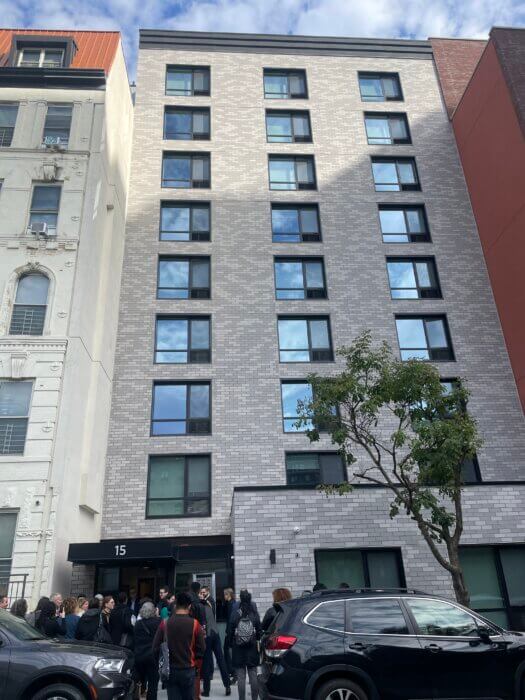
Residents have access to an on-site gym, a communal meeting area, a kitchen, desktop computers, an outdoor patio, and a laundry room. There is also a social worker and therapist on site to meet with residents, and counselors to help them develop life skills. During the holiday season, staff are planning to throw Thanksgiving and Christmas gatherings.
Residents are placed in the building through referrals issued by the New York City Department of Homeless Services, the Department of Youth and Community Development’s runaway and homeless youth program, and the Administration for Children’s Services.
At the ribbon-cutting event, Manhattan Borough President Mark Levine praised Homeward Central Harlem and said the city needs to build “hundreds” more supportive housing projects.
“We have an absolutely desperate need for supportive housing in this city,” Levine said. “We have an even more acute need for supportive housing for young people [and] homeless youth. And the need amongst LGBTQ youth is just so intense.”
LGBTQ young people are at a disproportionate risk of homelessness: Around 28% of LGBTQ youth experience homelessness or housing instability during their lives, according to the Trevor Project’s 2021 National Survey. In New York City, LGBTQ youth make up 34.1% of young people aged 13-20 living in foster care, according to a 2021 report.
“They are often pushed into homelessness by their family of origin due to their sexual orientation or gender identity,” Homeward CEO Jeannette Ruffins said. “And when your family tells you that something is fundamentally wrong with you, it fractures something in you.”
Many of the residents at Homeward Central Harlem have experienced trauma in their pasts, she said.
Lo, 23, told Gay City News they are excited to create a queer community in the building. They moved in on October 15, and said they are happy to live in a safe and LGBTQ-affirming environment.
“I think that’s really the benefit of being here,” Lo said. “If everybody is queer, then … you’re not going to be targeted because of your queerness or because of your expression.”
Lo is an artist who creates paintings and comics based on stories they read. They teach after school art classes to middle school students — and they are hoping art classes will be offered at Homeward Central Harlem.
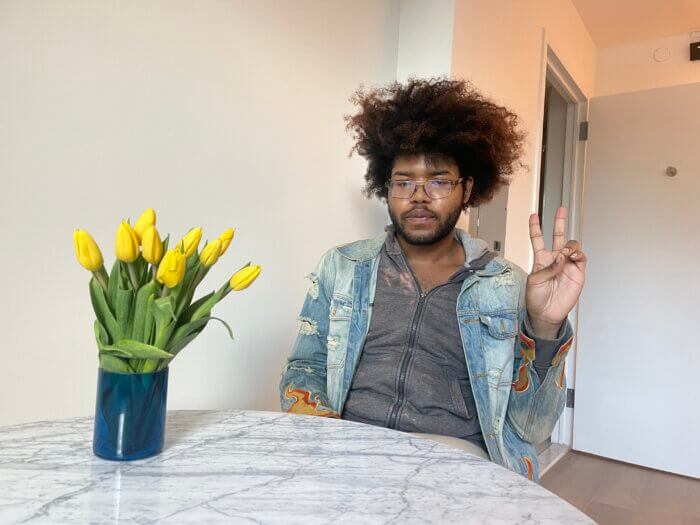
“I would love just to build a network of other queer artists and hear their stories, because their stories are really interesting to me,” Lo said.
Providing housing for LGBTQ youth is personal to Mildred Ramirez, the site manager at Homeward Central Harlem, who is also a member of the LGBTQ community.
“I had many friends who were homeless and who were scared to tell their families or to be accepted,” Ramirez said. “It’s a lifelong passion [and] dream to be able to work in an organization that really does provide services and really is committed to the LGBTQIA community and empowering the community.”
Ramirez was previously the manager of Homeward West Harlem, and said she has stayed in touch with many of the residents there, even years after they moved out. “It’s just inspiring what these young adults have been through,” she said of the new residents. “But also it’s going to be an inspiration to see where they go.”
The walls in Ramirez’s office might be blank for now, but soon they will be filled with Rainbow Flags.
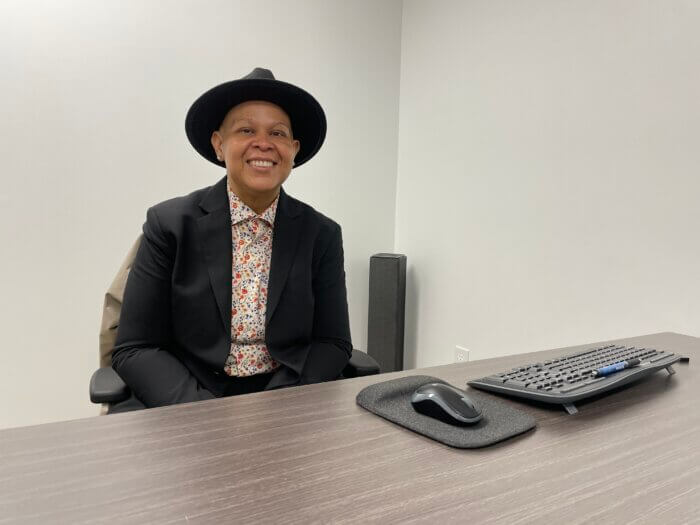
Malik Hanley, a 33-year-old resident of a different LGBTQ supportive housing building run by Homeward, told Gay City News the space helped him find purpose in life.
“I was early in my transitioning from female to male,” said Hanley, who lives at Homeward West Harlem. “So with family and stuff it was really hard to navigate in the very beginning. But now I can say I’m in a better place.”
Hanley, whose passion is the performing arts, said he’s planning to move out soon, preferably away from New York City.
“I just want to explore, do more, see more things, open my horizons to bigger and better things,” he said.
Hanley has made key memories during his time at Homeward West Harlem, such as when he dressed up as an elf for Christmas, or the shared thanksgiving dinners that created a sense of community.
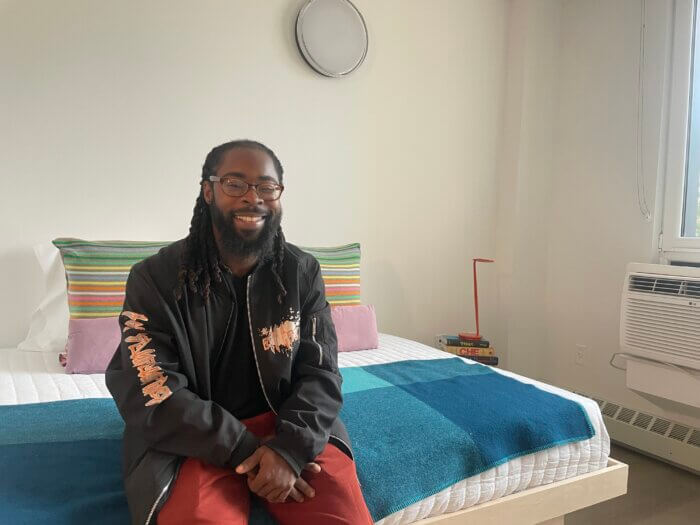
Ruffins said she plans to bring lessons from the two other supportive housing developments for LGBTQ youths to this one — particularly by emphasizing care and encouraging peer-to-peer guidance.
“Trauma-informed care acknowledges what happened to you instead of what is wrong with you,” Ruffins told Gay City News. “It flips the script and really helps both you and the service providers see that some of your behaviors that are defined as negative are actually a trauma response.”
At the same time, Ruffins added, it’s important for her to respect the resiliency of LGBTQ youth, many of whom may have experienced trauma and discrimination due to their sexuality and gender identity.
“We are working with people who we know are especially vulnerable,” she said. “They do need additional help, but they got this far. So I just think we need to honor their resiliency.”


